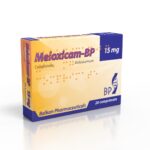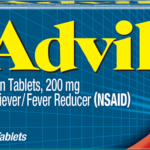Why Is Ketoprofen No Longer Available?

Ketoprofen is a nonsteroidal anti-inflammatory drug (NSAID) that is used to treat pain or inflammation caused by arthritis. Prescription ketoprofen is used to relieve pain, tenderness, swelling, and stiffness caused by osteoarthritis (arthritis caused by a breakdown of the lining of the joints) and rheumatoid arthritis (arthritis caused by swelling of the lining of the joints). Prescription ketoprofen capsules are also used to relieve pain, including menstrual pain (pain that occurs before or during a menstrual period).
Nonprescription ketoprofen is used to relieve minor aches and pain from headaches, menstrual periods, toothaches, the common cold, muscle aches, and backaches, and to reduce fever. Ketoprofen works by stopping the body’s production of a substance that causes pain, fever, and inflammation.
Ketoprofen oral capsule is used for short-term treatment. It comes with risks if you don’t take it as prescribed by your doctor.
If you don’t take it or stop taking it: Your pain may get worse and become harder to treat.
If you take too much: You could have symptoms such as drowsiness, stomach pain, and vomiting. An overdose could lead to seizures and kidney problems.
If you think you’ve taken too much of this drug, call your doctor or local poison control center. If your symptoms are severe, call 911 or go to the nearest emergency room right away.
What to do if you miss a dose: If you miss a dose, take it as soon as possible. If it’s close to the time for your next dose, skip the missed dose and go back to your regular dosing schedule.
Don’t take more than one dose at a time. If you’re unsure about what to do, ask your doctor or pharmacist.
How to tell if the drug is working: You should have reduced pain.
Why is ketoprofen no longer available?
Over-the-counter (OTC) versions of ketoprofen have been discontinued in the United States. Studies have shown that ketoprofen can increase your risk of fatal heart attack or stroke, even if you don’t have any risk factors. Do not use this medicine just before or after heart bypass surgery (coronary artery bypass graft, or CABG). Ketoprofen may also cause stomach or intestinal bleeding, which can be fatal.
In October 2020, the U.S. Food and Drug Administration (FDA) required the drug label to be updated for all nonsteroidal anti-inflammatory medications to describe the risk of kidney problems in unborn babies that result in low amniotic fluid. In Canada, Nu-Ketoprofen is no longer being manufactured for sale.
Ketoprofen side effects
Ketoprofen oral capsule doesn’t cause drowsiness, but it can cause other side effects.
More common side effects
The more common side effects that can occur with ketoprofen include:
• upset stomach
• nausea
• diarrhea
• headache
• dizziness
• drowsiness
If these effects are mild, they may go away within a few days or a couple of weeks. If they’re more severe or don’t go away, talk to your doctor or pharmacist.
Serious side effects
Call your doctor right away if you have serious side effects. Call 911 if your symptoms feel life-threatening or if you think you’re having a medical emergency. Serious side effects and their symptoms can include the following:
• Heart attack or stroke. Symptoms can include:
o chest pain
o shortness of breath
o weakness on one side of your body
o slurred speech
• Kidney damage (if you use it for a long time). Symptoms can include:
o decreased urination
o swelling in your arms, legs, hands, or feet
• Heart failure. Symptoms can include:
o unusual weight gain
o swelling in your arms, legs, hands, or feet
• Stomach problems, such as ulcers or bleeding. Symptoms can include:
o stomach pain or upset stomach
o black, tarry stools
o vomiting up blood
• Liver problems. Symptoms can include:
o yellowing of your skin or the whites of your eyes
o flu-like symptoms, such as body aches, fever, nausea, and vomiting
o tiredness
o pain in the upper part of your stomach area
o itching
• Skin reactions. Symptoms can include:
o reddening, blistering, or peeling skin
• Allergic reactions. Symptoms can include:
o shortness of breath
o swelling of your face, lips, or throat.





